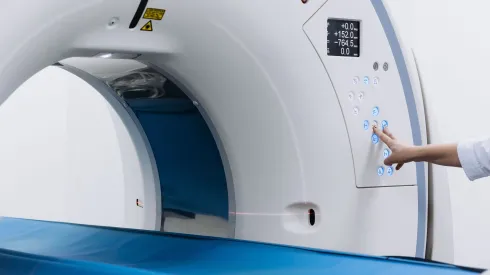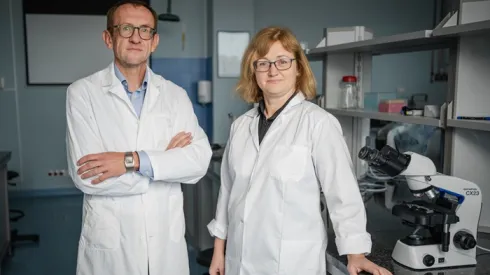
Cracow University of Technology student joins team working on new treatment methods
A Cracow University of Technology student will work together with scientists from Canada, the US and Austria on new methods of preventing bone demineralisation in astronauts, who are more susceptible to fractures and osteoporosis due to prolonged exposure to microgravity.
-

Type of training may affect gut microbiome composition
Depending on the type of physical, strength or endurance exercise, our intestines will be inhabited by slightly different health-promoting bacteria, researchers have found. Understanding the mechanisms of response to training is a step towards personalised dietary and training strategies based on the microbiome profile.
-

Polish tool brings order to viral chaos
Polish researchers have developed Vclust, a computer program that allows to compare millions of virus sequences in a matter of hours, and organize them according to the degree of similarity. Analysing huge genetic data sets with traditional methods would take years.
-

Polish research: Parasites can help treat autoimmune and inflammatory diseases
Parasitic proteins with therapeutic potential that can change the treatment of autoimmune and inflammatory diseases, such as Crohn's disease or MS, have been identified by Katarzyna Donskow-Łysoniewska, PhD, from Lazarski University.
-

Scientists develop method to accelerate radiotherapy planning
Scientists from Poland and Spain have developed a method of simultaneously creating many plans to irradiate the patient, from which the oncologist will choose the best one for a specific patient. The solution is expected to speed up the treatment process and help specialists.
-

Onko-SPARK project: Scientists are looking for new anti-cancer therapies
The Onko-SPARK project carried out at the Wroclaw Medical University may revolutionize cancer treatment. The research hypothesis assumes that the combination of new chemical compounds and electroporation will enhance their anti-cancer potential and will be more patient-friendly.
-

Study: High BMI and excessive weight gain during pregnancy increase risk of complications
A high BMI in a woman before pregnancy and excessive weight gain during pregnancy significantly increase the risk of complications, such as gestational diabetes, hypertension, caesarean delivery, breastfeeding difficulties and a higher birth weight of the newborn, according to a study conducted at the Cardinal Stefan Wyszyński University.
-

Bialystok scientists coordinate European project to combat tick-borne diseases
OneTick, an international research initiative coordinated by the Medical University of Bialystok, the aim of which is to combat tick-borne diseases in urban and suburban environments, has received funding from the EU's MSCA Staff Exchanges 2024 programme.
-

European patent for innovative implantable biomaterials
Scientists have patented innovative implantable biomaterials - composites for the treatment of bone defects and for use in regenerative medicine. The patent was granted by the European Patent Office (EPO) for 'Multifunctional composite implantable materials for filling bone defects and regenerating bone tissue', the University of Gdańsk reports.
-

Polish AI detects mental disorders
Polish experts have developed a system that detects depression, anxiety and other disorders based on eye movements in just 10 seconds. The accuracy currently reaches 70 percent, but researchers see the possibility of increasing it further.













